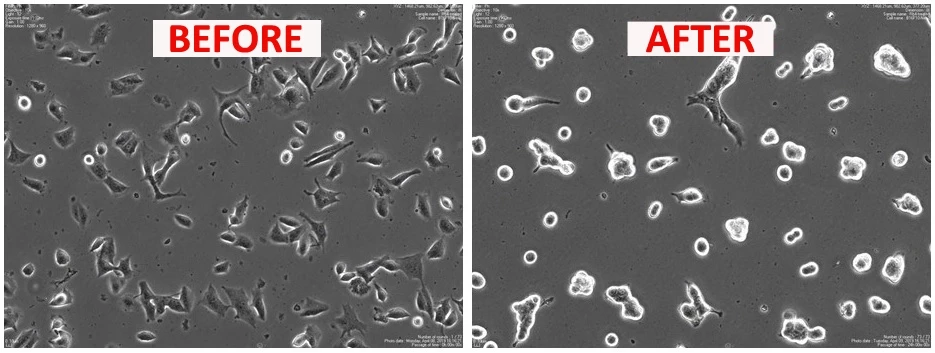Melanoma is the deadliest form of skin cancer, thanks to its ability to rapidly spread to other organs. Brazilian researchers have now developed a peptide that seems to slow the growth and spread of melanoma, improving the survival rates of test mice.
Skin cancer is the most common type of cancer, and although melanoma is only responsible for about one percent of those cases, it causes the majority of skin cancer deaths. That’s because it’s especially prone to metastasizing.
Previous studies have linked a protein called PLP2 to melanoma’s deadliness – overexpression was found to increase its metastasis, while blocking it inhibited growth and spread. In the new study, researchers developed a peptide called Rb4, which is derived from PLP2, and tested how well it worked against melanoma.
In tests on melanoma cells cultured in the lab, those treated with Rb4 stopped replicating and formed clusters. It seems to act directly on tumors, increasing expression of two molecules that are associated with tissue damage, and ultimately inducing necrosis, a type of cell death that arises from a lack of blood flow to tissue.

In other tests, the team injected mice with melanoma cells then followed it up with a series of five injections of Rb4 over 10 days. Tumor growth was delayed by up to 40 days in the treated mice, and significantly reduced the number of metastatic nodules found in the animals’ lungs. The treatment also increased group survival by more than 25 percent.
The researchers also note that no side effects were seen in the treated mice. With the results seen, the team suggests that the Rb4 peptide could become a promising cancer treatment with further development, which is proceeding at the Brazilian biotech company ReceptaBio.
The research was published in the journal Scientific Reports.
Source: FAPESP




